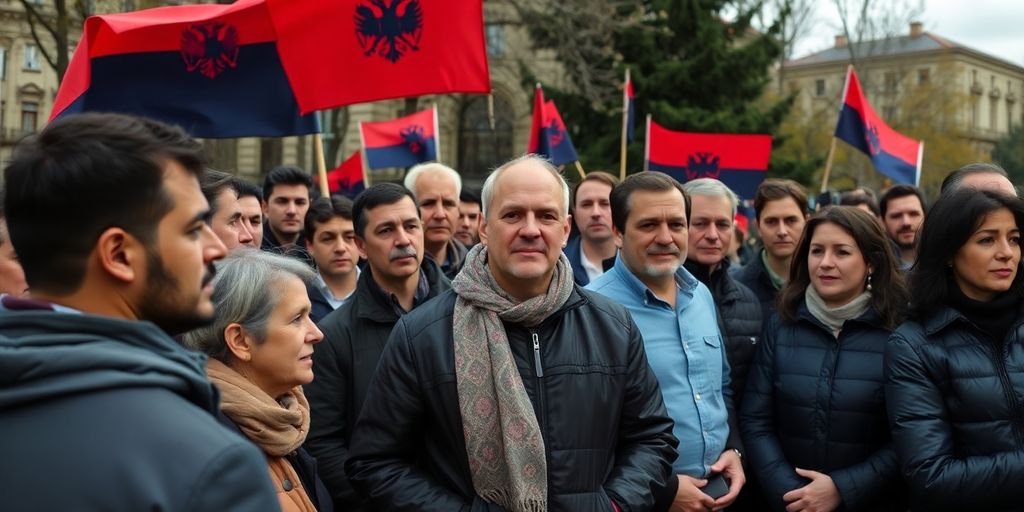In a significant political move, Albanian representatives in Serbia have declared a boycott of the upcoming government formation talks led by President Aleksandar Vucic. Shaip Kamberi, the Albanian representative in the Serbian Parliament, criticized the talks as a "false democratic process," highlighting the longstanding neglect of Albanian issues by Serbian authorities.
Key Takeaways
- Albanian representatives in Serbia are boycotting government formation talks.
- Shaip Kamberi labels the talks as a "false democratic process."
- The boycott reflects ongoing tensions and grievances regarding the treatment of Albanians in Serbia.
Background of the Boycott
The decision to boycott the talks stems from a history of perceived marginalization of the Albanian community in Serbia. Despite being a significant ethnic minority, Albanians have often felt excluded from meaningful political dialogue and decision-making processes. Kamberi’s statement underscores a growing frustration among Albanians regarding their representation and the government’s failure to address their concerns.
Reasons for the Boycott
- Lack of Representation: Kamberi argues that the Serbian government has consistently ignored the needs and rights of the Albanian population.
- Historical Grievances: The Albanian community in Serbia has faced various forms of discrimination and neglect, leading to a deep-seated mistrust of the government.
- Call for Genuine Dialogue: The boycott is a call for a more inclusive and genuine political process that acknowledges and addresses the specific issues faced by Albanians in Serbia.
Implications of the Boycott
The boycott could have several implications for both the Albanian community and the Serbian government:
- Political Isolation: By refusing to participate, Albanian representatives may further isolate themselves from the political process, potentially diminishing their influence.
- Increased Tensions: This move may exacerbate existing tensions between the Serbian government and the Albanian community, leading to further unrest.
- Need for Reform: The boycott highlights the urgent need for reforms in how minority groups are treated within the Serbian political system.
Reactions to the Boycott
The announcement has sparked varied reactions across the political spectrum:
- Support from Albanian Community: Many within the Albanian community have expressed support for the boycott, viewing it as a necessary step to demand recognition and rights.
- Criticism from Serbian Officials: Some Serbian officials have criticized the boycott, arguing that it undermines efforts to foster unity and cooperation among different ethnic groups.
Conclusion
The boycott of the government formation talks by Albanian representatives marks a pivotal moment in the ongoing struggle for recognition and rights within Serbia. As tensions rise, the Serbian government faces increasing pressure to address the grievances of its Albanian population and to engage in a more meaningful dialogue that reflects the diverse fabric of its society. The outcome of this boycott could significantly shape the future of Albanian-Serbian relations and the political landscape in the region.






